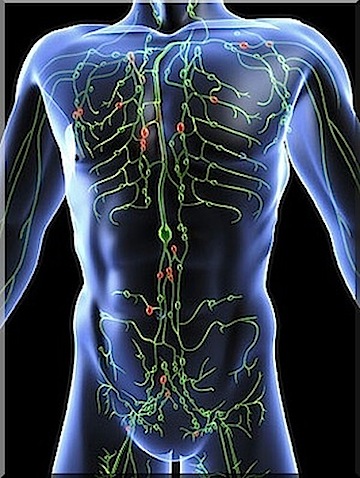Did you know September is Worldwide Leukemia and Lymphoma Awareness Month? Well, neither did I until a few days ago. Actually, up until a couple months ago I didn?t even know what lymphoma was.
Charity, awareness, fundraising, these are all things that I didn?t give too much thought to before. I?d play my part, feel good about myself, then move on with my busy life. Now that I am one of the growing number of faces affected by cancer, my view of the whole thing has completely changed.
First, let me help raise the awareness by describing these cancers a little more. They are not your typical ?get tumour, get operation? cancers. That is because they start in the blood. The cells that travel all through our bodies which are not just located in one convenient place.
There are three types of cancers that are generally categorized as blood cancers ? leukemia, lymphoma, and myeloma. There are probably hundreds of different sub-classifications from here, so today I am just going to point out the main differences.
Leukemia starts in the bone marrow. Inside our bones is where the white cells are created, and these cells can rapidly grow, turning them cancerous. Myeloma also starts in the bones, with a different kind of white blood cell called plasma.
Lymphoma, the cancer I have, is sort of like the next step in the cell process. The white blood cells go from the bones to the lymphoid system, an array of complex vessels that is part of our circulatory system.

Once in the lymphoid system, the cells become known as ?lymphocytes? and move around the system, flushing out through small nodes at the end of the vessels. It?s also where immune responses are stimulated, making it a part of our immune system.
The cancer I have is of those lymphocytes. Specifically, of a ?B? type of cell that designates it as ?Hodgkins Lymphoma.? This type of cancer is actual very predictable in how it grows, often starting with a mass of growing nodes in the throat or chest. It also responds very well to chemotherapy. Blood cancers can?t always be operated on as they don?t create the big lumpy tumours we are more familiar with. I think of it more as a ?shadow? of extra, unwanted cells. I personally find blood cancers more scary because of the cell?s ability to travel anywhere in the body and spread to organs.
Blood cancers, like any other kind of cancer, can happen to anyone at any time. But you?ll notice they are the most common types of cancer in younger people. And this is where awareness is important!
As I?ve mentioned many times before, it?s not like someone can just get cancer at 20 years old, beat it, then forget about it. Getting cancer at such a young age sets patients up for decades of potential health problems as a result of our still-outdated treatments.
Chemotherapy is an incredibly harsh therapy that kills the good cells along with the bad cells. For example, apart from making one?s hair fall out, it can also cause infertility. A big deal to a 25-year-old woman like me. Radiation puts people at risk for other cancers down the road. A much larger risk to take if you still have 60 years of life ahead of you. To the point where I may not get radiation to my chest because of the high associated breast cancer risk.
I had no idea just how outdated our cancer treatments were until, obviously, I started receiving them. When people say that ?chemo isn?t as bad as it used to be? it?s not that the chemo has necessarily changed ? it?s that there have been more advancements in drugs to take along with it to make the side-effects more manageable (thank you Zofran!!).
What we really need are treatment options that don?t kill the healthy cells. In today?s advanced medical world, it sounds like an easy task. But it?s not. It?s still really hard to make a medicine that can distinguish between the healthy thriving cell that grows the hair on my head, and the bastardly cancer cell that wants to take over my chest.
There have been small advancements in recent years, and scientists are still working away at finding modern treatments. But as we know, research ain?t cheap. Part of raising awareness is inspiring people to take action on top of that. There are all kinds of way you can give back if you feel so inclined. You can check out the LLS website. I?m a big fan of donating to your local oncology clinic and cancer research centres. Or, in the tune of The Great Fundraising Act, find an individual cancer patient who needs your help.
Even if you can?t give back, just having a greater understanding of cancer is a good start. In a world where ?awareness? is wearing pink boas and updating our Facebook statuses, I think it?s important to know that there is much greater depth to this big bad disease. You don?t have to know all the science behind it, but you should know there are real people dealing with real problems because of it.
Like this:
Be the first to like this post.
Source: http://thegreatbalancingact.com/2011/09/06/becoming-aware-about-blood-cancers/
les miserables wale wale patagonia progress book durian university of miami
No comments:
Post a Comment
Note: Only a member of this blog may post a comment.